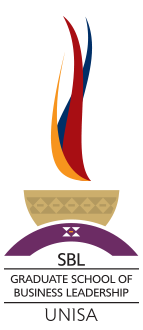
 As South Africa’s next generation of leaders starts making its presence felt across various sectors and industries, many are increasingly having to prove their worth and value. While this is arguably part of the “leadership rite of passage”, Dr Denisha Jairam, ICT Head: Shared Services at Development Bank of South Africa and recent UNISA SBL graduate, argues that technology is redefining this “rite”. With the continued erosion of tacit knowledge transfer, and many young leaders far better placed to empower and equip themselves with information using digital platforms, this rapid rise to young leadership needs to be supported both by organisations and our outgoing and older leaders.
As South Africa’s next generation of leaders starts making its presence felt across various sectors and industries, many are increasingly having to prove their worth and value. While this is arguably part of the “leadership rite of passage”, Dr Denisha Jairam, ICT Head: Shared Services at Development Bank of South Africa and recent UNISA SBL graduate, argues that technology is redefining this “rite”. With the continued erosion of tacit knowledge transfer, and many young leaders far better placed to empower and equip themselves with information using digital platforms, this rapid rise to young leadership needs to be supported both by organisations and our outgoing and older leaders.
As technology continues to shape our world and how we engage with it and in it, many of South Africa’s next generation leaders are grappling with how best to leverage – and manage – its disruptive potential. “The rise of digital platforms and technology have opened up a new world of information and data, changing how we learn and are able to advance ourselves,” says Dr Denisha Jairam. “Individuals, typically of the ages of 35 and below, who grew up exposed to technology, and subsequently grew with this technology often have a different view of how skills and knowledge is transferred. In prior years, skills and knowledge transfer used to happen from person-to-person over time; it can now happen (when convenient) between a device and a person within minutes/seconds and, arguably, equally effectively. As such, we’re seeing young leaders able to empower and develop themselves, and own this development at the exponentially fast pace which they are choosing.”
She notes that this quest for knowledge and virtual connection is driven by the critical need to remain personally relevant in an ever-changing dynamic world. “Relevance is directly shaped by actionable knowledge in today’s business world. With a global focus on innovation, efficiency and differentiation for survival, the current generation of young and upcoming leaders understands data and information as the new currency. They also see themselves as responsible for keeping up to date at a rapid rate using the ever growing amounts of information available.”
Keeping relevant and abreast of the latest trends and information enables far more rapid advancement up the corporate succession chain in many sectors and industries. This often proves to be a mixed blessing – as corporates and organisations, as well as older leaders are not necessarily geared to support this. “Professional advancement was previously more structured, with many companies requiring you to be in a certain role for a specific period of time before it was ‘acceptable’ for you to be promoted. Increased access to information now means that this usually-prescribed period to be in a role can be significantly shortened, depending on an individual’s tenacity and professional drive. In this way, young leaders are physically shaking up industries in many instances, disrupting systems and processes.”
Jairam argues that older leaders need to support, embrace and enable ambitious young leaders – seeing their enthusiasm as positive, and channelling it productively; as opposed to being fearful of it. One of the key elements of this support is listening to and engaging with younger leaders’ ideas, insights and new perspectives. “Too often, emerging leaders are still shut down by older incumbents due to their feeling threatened. Challenging ideas or recommending new approaches is often viewed negatively. This type of approach defeats the purpose and role of new thinking in the workplace – and its relevance. As such, we need to actively engage with what we believe the ‘rules’ of leadership to be, and encourage its development far more readily in younger generations.”
While South Africans arguably find themselves grappling with this issue at a far broader level at the moment, it remains an exciting time to be part of this debate – challenging previous “thinking” and accepted norms. “Our country’s young leaders have an exceptional task facing them. We are the generation that needs to realise the real potential of South Africa, and unlock its inherent possibility for all of our people. We need to be supported and embraced in our quest to do this – remembering that we are ultimately the legacy our older generation of leaders have worked so hard to leave behind,” Jairam concludes.
Publish date: 2017-04-06 00:00:00.0
Contact the Marketing and Communication office: Ms Thami Kaunda at kaundn@unisa.ac.za
011 652 0339
Telephone: +27 11 652 0248 / +27 11 652 0291
Email: sbl@unisa.ac.za
Physical Address:
Cnr Janadel and Alexandra Avenues
Midrand, 1686
Gauteng, South Africa
Download map & directions (PDF)